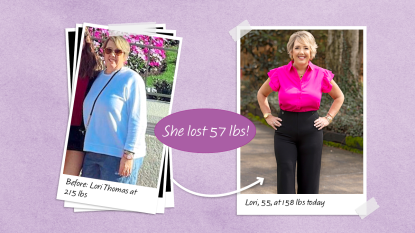Will Optimism Help You Live Past 90? New Research Suggests That It’s as Beneficial as Exercise

It might be hard to believe that your disposition can affect your physical health. We often think of the mind and the body as two separate entities — but they’re more connected than most people think. In fact, mental state is such an important part of our wellbeing that a high level of optimism may even help you live longer.
According to a recent study published in the Journal of the American Geriatrics Society (AGS), women who are more optimistic are more likely to live to age 90 and beyond. Here’s why seeing the glass half-full can have long-lasting benefits.
The Importance of This Particular Study
What makes this study unique? Previous research suggested that positive dispositions help people live longer — yet few studies explored this theory among a diverse group of participants. Investigations that involve only white volunteers show results that don’t apply to everyone. The AGS study explores the benefits of optimism across a diverse group of volunteers, which could help people across diverse ethnicities, races, and walks of life find new ways to improve their health.
(Note: In this study, race refers to the government definition of race: people who identify as white, Black or African American, Asian, American Indian and Alaska Native, Native Hawaiian and Other Pacific Islander. Ethnicity referred to people who identify as Hispanic or Latinx.)
In addition, previous studies showed that optimistic people (as opposed to less optimistic people) tend toward healthier behaviors, like regular exercise, eating diets full of fruit and vegetables, and not smoking. This connects healthy behaviors and longevity, but it does not directly link a positive outlook to longer life. The recent AGS study, however, shows that optimism itself is beneficial.
“Our findings suggest that there’s value to focusing on positive psychological factors, like optimism, as possible new ways of promoting longevity and healthy aging across diverse groups,” Hayami Koga, PhD candidate in the Department of Social and Behavioral Sciences at Harvard Chan School and lead author of the study, explained in a press release.
Understanding the Study
To conduct their research, Koga and her team collected data from over 131,000 women who participated in the Women’s Health Initiative (WHI). (The WHI is a long-term national health study focused on strategies for preventing heart disease, breast and colorectal cancer, and osteoporosis in postmenopausal women. Researchers use WHI data to create their own studies.) The women were between 50 and 79 years old.
The researchers tested the participants’ optimism levels with a Life Orientation Test. In the test, the volunteers were asked to react to certain statements on a scale from one to five, with one being “strongly disagree” and five being “strongly agree.” Without being aware of it, volunteers subconsciously agreed with positively worded phrases and disagreed with negatively worded phrases, or vice versa.
The Link Between Optimism and Living Longer
After adjusting the data for race, ethnicity, income level, depression, and other chronic health conditions, the researchers found that the most optimistic women — the top 25 percent of the participants — had a 5.4 percent longer lifespan and were 10 percent more likely to live beyond 90 years old. This was in comparison to the most pessimistic women (the bottom 25 percent). As the researchers suggested, the benefits of a sunny disposition may even be comparable to the benefits of exercise.
Why might this be? Koga and her team cited previous research, which shows that psychological stress can have a negative impact on physical health. The American Psychological Association (APA) also states that stress affects all systems of the body. It can create chronic muscle tension leading to migraines, and it can increase your risk of high blood pressure, a heart attack, or a stroke. On the other hand, positivity and a lack of psychological stressors may protect the body against inflammatory damage.
So, why is this research helpful? It could open doors for future health initiatives. “We tend to focus on the negative risk factors that affect our health,” Koga explained. “It is also important to think about the positive resources such as optimism that may be beneficial to our health, especially if we see that these benefits are seen across racial and ethnic groups.”
If you feel more pessimistic than the average person, not all is lost. It might be a good idea to speak to a therapist. You can also check out this guide for boosting happiness and these tips on how to embrace positive aging. Your perspectives won’t change overnight, but practicing little changes each day can help you dramatically adjust your outlook for the rest of your life.













